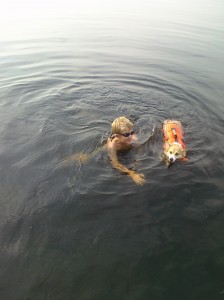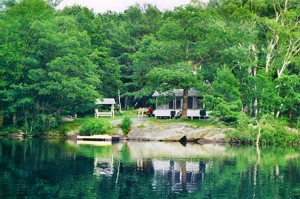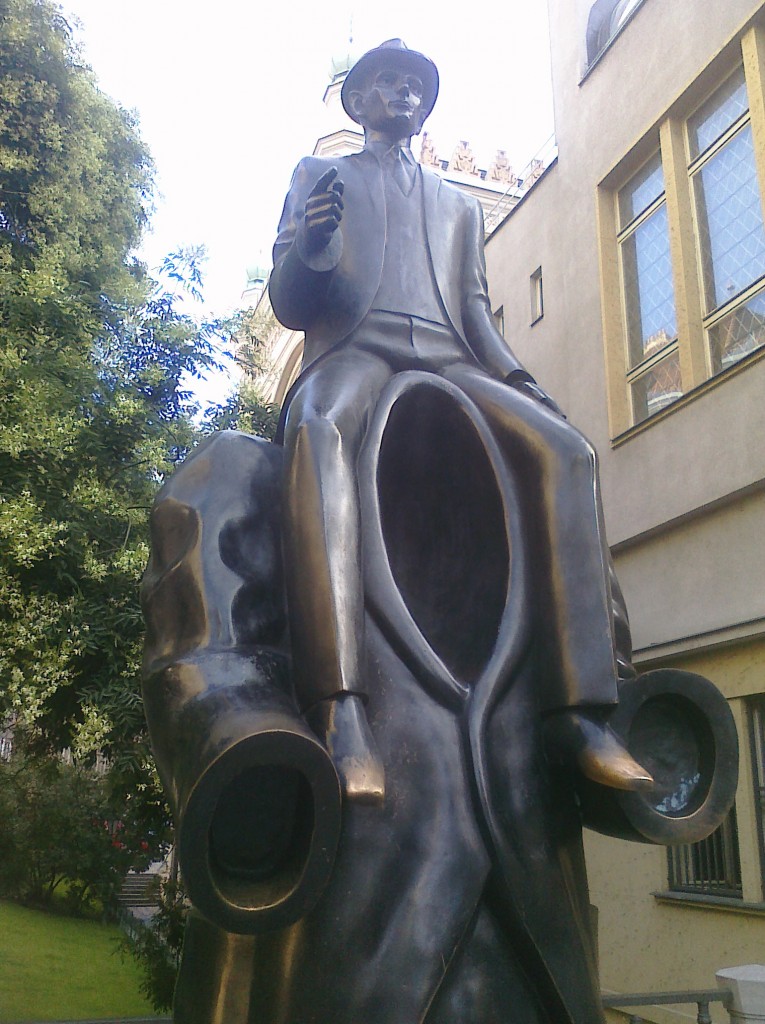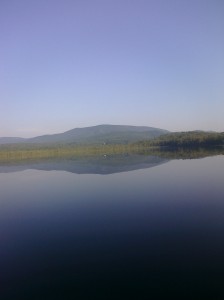 A few pictures from a great week at Labrador Pond, followed by a three-day excursion with just Ian to the Skowhegan Fair, Mt Desert Isle, and Great Gott Island.
A few pictures from a great week at Labrador Pond, followed by a three-day excursion with just Ian to the Skowhegan Fair, Mt Desert Isle, and Great Gott Island.
Gone Swimming
Leopards in the Temple
On my long flight home from Prague, I thought about Multitudinous Seas, about a research network that would connect London to Providence to Cape Town to Calcutta, about how I’ll deal with the heat wave I’ve flown back into, and about the weird surging liveliness of a gorgeous ancient city overrun by touristas.
I also spend many transatlantic hours reading and thinking about Kafka.
Leopards break into the temple and drink the sacrificial temples dry; this is repeated over and over again; finally it can be calculated in advance and it becomes part of the ceremony.
In years of mulling this astounding aphorism, I’ve usually thought it was about literary history, change, and continuity. For a while I even thought I’d use it as an epigram for my dissertation, as a way to explain what I was working out about genre theory and early modern narrative romance. Now I think it’s got an eco-angle too, since it’s a great, compact example of what literary culture does best and what we need to do in relation to ideas of ecology, namely come to terms with radical change.
After spending a week between Kafka’s house and the Hard Rock Cafe in Prague, I now think it’s also about Prague as a historical artifact, with its layering and mixing, its many languages and eras and communities. Old cities create such amazing chrono-mixes.
I suppose it’s also possible that Kafka was thinking of this very famous pub, the drinking home base of the great Prague poet Bohumil Hrabal, where Vaclav Havel once brought Bill Clinton for a symbolic beer. We tried to get in last Thursday night, but they don’t really serve tourists, esp not close to closing time. 
At the Sign of the Hippo
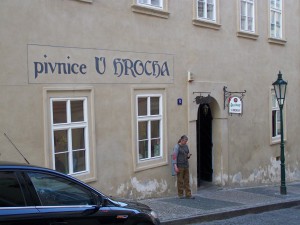 In case you’re wondering where the best Pilsner is the world is brewed and served, it’s right here under the sign of the Hippo, U Hrocha, Thunovská 10, partway up the hill to the Castle on the other side of the river from Old Town Square. They make tourists stew a bit before serving them, but it’s worth it.
In case you’re wondering where the best Pilsner is the world is brewed and served, it’s right here under the sign of the Hippo, U Hrocha, Thunovská 10, partway up the hill to the Castle on the other side of the river from Old Town Square. They make tourists stew a bit before serving them, but it’s worth it.
Kafka’s Head
Staronestsje namesti
Avery Aquatic Center
 One highlight of the West Coast swing that’s been keeping the Bookfish quiet was a swim last Wed at Stanford’s Avery Aquatic Center with the Master’s Swim Program there. I swam in the 10-lane, long course, deep water practice pool with about 25 other folks in the 1 pm practice, one of three held that day. I’ve never swum in an Olympic-caliber facility before, & it’s pretty amazing.
One highlight of the West Coast swing that’s been keeping the Bookfish quiet was a swim last Wed at Stanford’s Avery Aquatic Center with the Master’s Swim Program there. I swam in the 10-lane, long course, deep water practice pool with about 25 other folks in the 1 pm practice, one of three held that day. I’ve never swum in an Olympic-caliber facility before, & it’s pretty amazing.
Coach Tim, who very kindly let me join the group as a visitor since I don’t yet have a US Masters card, ran us through a bunch of drills I’ve never done before. “Vertical flutter kick” is what it sounds like, and also combined with spins from the hips every 3 seconds to work on the long stomach muscles that cant the torso from side to side. Also a 15m “forward arm travel” kicking on my side after each turn on a 300m set.
Swimming long course — 50m rather than 25 yards — puts you in a much better rhythm, much more concentration on how you move through the water. I wonder if there’s such a pool anywhere in CT? Maybe at UConn — though part of the fun was also being outside, which of course we aren’t likely to have for east coast training.
Something else to put on my West Coast itinerary for next year, and all the years to come.
Nothing but takes
The best literature is always a take [in the musical sense]; there is an implicit risk in its execution, a margin of danger that is the pleasure of the flight, of the love, carrying with it a tangible loss but also a total engagement that, on another level, lends the theater its unparalleled imperfection faced with the perfection of film.
I don’t want to write anything but takes.
Those lines from the great Julio Cortazar have been swirling about in my mind since reading some fine meditations on writing by Jeffrey Cohen and larvalsubjects. Still swirling as I gear up for my own summer writing — metis, poetry, swimming, air, brown ecologies…
Cortazar gives us the abandon, risk, and play that fuel the manic act of writing. Listen to his words — danger, pleasure, risk, love, flight, imperfection. The joys of not knowing exactly where you’ll end up.
I think I need to re-read Cronopios and Famas.
Hungry Ocean: History, or Not?
The sea is history, says the poet. No, it’s slavery, says a novelist. Maybe it’s Romanticism, says another poet. Or eternity and change, sounds a familiar chorus.
On a very broad level I convened the Hungry Ocean to try to bring competing oceanic models into contact with each other. On the basic question, we’re in critical agreement: historicizing is a good thing. But size and continuity matters, and the physical pressure of the ocean as ocean exerts a counter-historicist and counter-cultural unifying pressure. “The great shroud of the sea rolled on as it rolled five thousand years ago,” writes Melville — but surely it’s our task as critics to peek under that shroud?
Bernhard Klein’s talk, “Fish Walking on Land” (love that title), with its great analysis of a satiric maritime how-to book from the 16c, was perhaps our sharpest reminder of historical alterity in the maritime world. But several other papers also, including Hester Blum’s fascinating anatomy of printing under polar conditions, Mary K Bercaw-Edwards on “Sailor Talk in the South Pacific,” and Jennifer Schell on social whalemen and Rocky mountain isolate-trappers, brought forward the anti-ecstatic, historically unfriendly sea. Not a space for Club Med, nor Crusoe, nor happy little grommets.
It’s easy for historicist critics to value these historical exfoliations for the alien pasts they open up to us, and possible also to find in our modern ambivalence about the ocean connections to these lost places and unforded passages. But, sentimental swimmer that I am, I’m still attracted to the ocean as symbol and reality of global and historical connectedness. When the weather gets nicer I’ll go swimming in the same ocean as a certain recently buried body, and I’ll think about that physical connection. Does that make me anti-historicist? (I know it’s an imagined unity in space, not time — but so what?)
Glissant, as usual, guides my uneasy historicizing. He insists on errant particularity — “Generalization is totalitarian” (20)– but also on the unities of oceanic forms and currents. The master-metaphor is not Romantic or modernist transformation, but something messier, hidden, submarine:
We no longer reveal totality within ourselves by lightning flashes. We approach it through the accumulation of sediments. The poetics of duration… (33)
Underwater in the moving salt body, in Caribbean “defraction” rather than Mediterranean focus, on a beachy edge “between order and chaos” (121-2). In an “aesthetics of a variable continuum, of an invariant discontinuum.” (151).
We clamor for the right to opacity for everyone (194).
Glissant’s beach is a good place to be.
“Earth-centric truths”
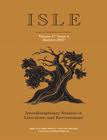 Just read the cluster on “Ecocriticism and Theory” in the Autumn 2010 ISLE, the journal of the ecocritical society ASLE. Some lively stuff, as usual, including a rising interest in “ecoaesthetics” that’s apparently coming from China, with some help from Scott Slovic and the European journal ecozona. It’s quite exciting to see new eco-trends emerge from the confines of nature writing, American studies, and Romanticist studies into a global space.
Just read the cluster on “Ecocriticism and Theory” in the Autumn 2010 ISLE, the journal of the ecocritical society ASLE. Some lively stuff, as usual, including a rising interest in “ecoaesthetics” that’s apparently coming from China, with some help from Scott Slovic and the European journal ecozona. It’s quite exciting to see new eco-trends emerge from the confines of nature writing, American studies, and Romanticist studies into a global space.
Many of the contributions to the theory cluster explore perceived tensions between green politics and theory, activism and intellectual inquiry. I’m very interested to see space being made for a more theoretical, more literary, and, in Greg Gerrard’s phrase “a great deal more difficult” ecocriticism. The global / postcolonial move promises to change eco-studies in fascinating ways.
But I worry a little about those “Earth-centric truths” that are the “undeniable heart” of the “green agenda.” It’s not that I don’t want more ecological knowledge, a wider range of interest in and responsibility toward the nonhuman environment. It’s that I don’t see the word “ocean” anywhere in this cluster. And ocean is mostly what the so-called “earth” really is.
Maybe this little conference next fall at the Island Institute in Maine, which will attempt to fill the “blue hole in environmental history,” can help on that front. Abstracts are due to John Gillis by the end of March. The Rachel Carson Center will pay all travel & lodging expenses. I’m involved in the session on literature and the arts.
- « Previous Page
- 1
- …
- 32
- 33
- 34
- 35
- 36
- …
- 42
- Next Page »
